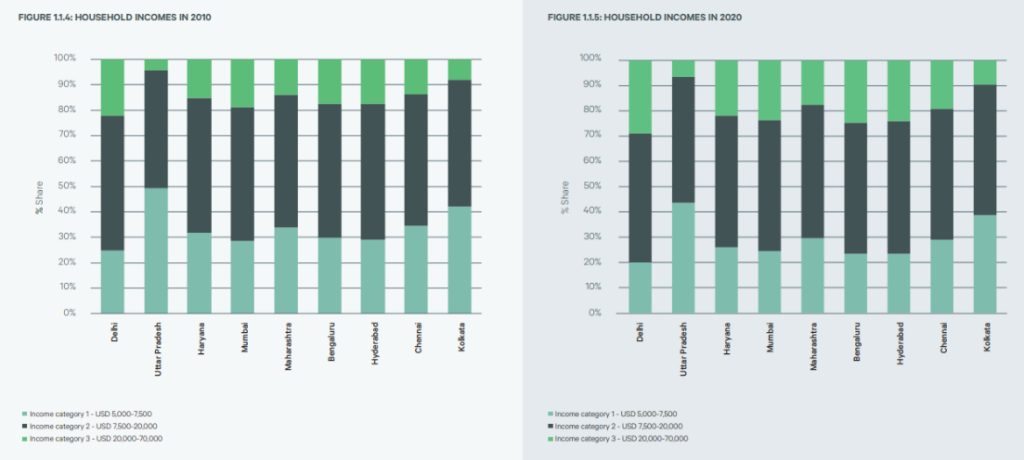News
Model Tenancy Act to catalyse growth of residential rental segment: CBRE


National, 09 December 2021: Real estate consulting firm, CBRE South Asia on Thursday announced the findings of its recent report, ‘Advent of Rental Housing in India’, sharing insights on the potential of rental housing in India.
A shift in demographics, socio-economic trends and consumer needs, in addition to an acute housing shortage, are expected to drive the demand for the rental housing in urban locations over the next few years. The Affordable Rental Housing Complex (ARHC) scheme and passage of the Model Tenancy Act, 2021 (MTA) are the first few steps towards formalizing this segment, demand for which is expected to grow exponentially over the next few years.
The report further delves into the need for rental housing in India and the past policy initiatives taken to streamline the segment. Over the past decade, while income levels have grown substantially, average capital values, especially in Tier-1 cities, have remained high (albeit value appreciation has been largely muted).
Property prices have grown at a CAGR of about 2-7% across the mid segment since 2010, with Hyderabad, Bangalore and Pune recording growth at the higher end of the range (albeit at a lower base when compared to regions such as Delhi-NCR and MMR). Simultaneously, over the past decade, income levels too have increased.


A benign repo rate regime and continued policy support from central and state governments have strengthened the appetite of residential buyers, home ownership continues to evade many due to high ticket value of apartments, delays in project deliveries and unsuitable locations of pocket-friendly apartments, particularly in Tier-1 housing markets.
This is the gap that can be plugged through the formalization of the rental housing sector. Model Tenancy Act (MTA) 2021 is aimed at overhauling the legal framework surrounding the rental housing market of India, thereby institutionalizing the segment by creating a rent authority to provide a speedy dispute adjudication mechanism. The passing of the MTA is a reaffirmation of the government’s shift in perspective – that ‘Housing for All’ does not merely entail ownership, but also includes access to quality housing.
The streamlining of the rental segment by way of establishing a legal framework in the form of rental courts as well as structured tenancy agreements is expected to encourage private partnership in the segment.


“The Model Tenancy Act will be a gamechanger for the Indian rental housing segment. The Act is expected to encourage private participation and help monetize the vacant rental stock by infusing trust in landlord-tenant relationship, in addition to providing a speedy dispute adjudication mechanism. We further expect the Act to have far-reaching implications towards formalizing the housing market in India.” said Anshuman Magazine, Chairman, India & South-East Asia, Middle East & Africa, CBRE


“The Indian Rental Market has always been more inclined towards the commercial side due to comparatively higher yields. However, the passage of the Model Tenancy Act will help shorten the demand and supply gap in rental real estate. We look forward to the evolving tenant-landlord dynamics and expect the sector to witness a growth never seen before.” said Abhinav Joshi, Head of Research – India, Middle East & North Africa, CBRE
However, the creation of a robust rental housing market would require further measures, which includes the enactment of a Rental Housing Policy. While the enactment of the MTA is a strong first step towards the formalization of this market. CBRE has few recommendations that can further enable the Act to streamline the rental real estate market across cities.
- The Centre needs to ensure that states amend their existing Acts or enact a new policy without diluting the essence of the central guidelines.
- The timeline for resolution of some disputes needs to be specified in the MTA. These include disputes on withholding essential services, revision of rent and contraventions by property managers.
- Terms such as ‘pandemic’, ‘epidemic’ or even ‘lockdown’ have not been in the definition of force majeure. Keeping in mind the fluidity around the current situation, this can be added in the current Act.
- The Act mentions that in the absence of an agreement / statement of information, the landlord / tenant is not entitled to any relief. To truly formalize the rental market, authorities should consider incorporating this clause for at least premium assets.
- The Act has left multiple terms undefined which need to be clarified for effective implementation; these include terms such as ‘uninhabitable’, ‘detrimental to the interest of the landlord’ and immoral purposes.
- While the bar on eviction has been removed by the act, the process remains as restrictive as before: eviction can be carried out only on limited grounds, and that too after taking permission from the rent court.
Besides, there is a need for measures that improve the financial viability of rental housing projects in India. These could range from exempting property tax for an initial predefined period, allowing additional low-cost FSI for rental housing, encouraging PPP participation for developing rental housing on government land, facilitating ease of capital for build-to-lease and rent-to-own residential projects etc.
-



 Interviews4 weeks ago
Interviews4 weeks agoHigh Rental Yield, Price Appreciation, Stable Growth, Make Sydney an Ideal Realty Investment Option: Haansal Estate
-



 News3 weeks ago
News3 weeks agoKW Delhi 6 Mall Onboards New Brands
-



 News3 weeks ago
News3 weeks agoManasum Senior Living Launches IKIGAI GOA, A Senior Living Community in North Goa, in collaboration with Prescon Homes
-



 News2 weeks ago
News2 weeks agoGodrej Properties Sells Rs 3k cr+ Homes of Godrej Zenith, Gurugram, within 3 days
-



 News3 weeks ago
News3 weeks agoBridging India Divide: Top 5 Tier- 2 Cities to Focus On
-



 News3 weeks ago
News3 weeks agoCommercial Realty Gets Tech Savvy: Fast Construction, Enhanced Convenience
-



 News3 weeks ago
News3 weeks agoMultipoint Connection – A Definite Boon
-



 News2 weeks ago
News2 weeks agoRBI’s Status Quo on Key Policy Rates to Help Maintain the Real Estate Growth Momentum, Say Industry Stalwarts

















